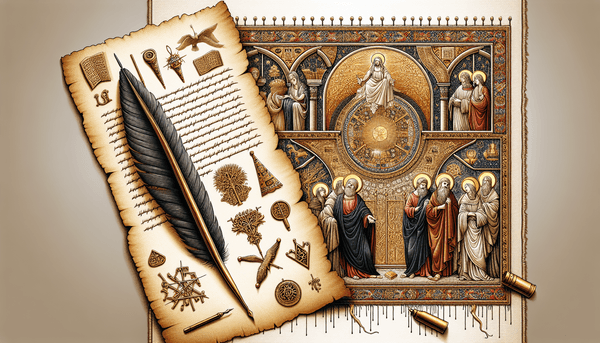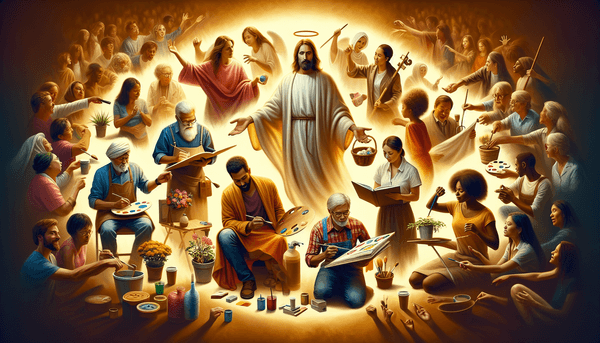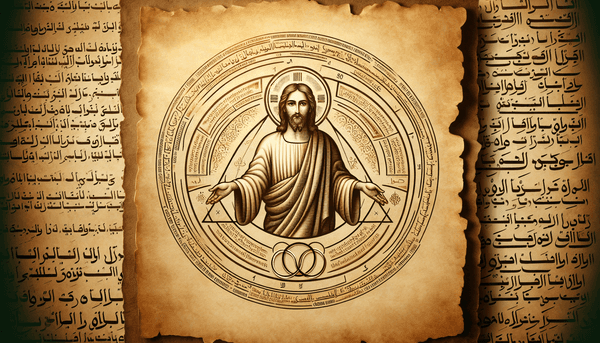The Role of Joseph in Christianity
In the heart of the Christian narrative, Joseph stands as a pillar of virtue and obedience. When confronted with Mary's unexpected pregnancy, Joseph, described in Matthew 1:19-21, chose to act with justice and mercy, reflecting his deep righteousness. His decision to embrace Mary as his wife, despite the social stigma, and his unwavering support to raise Jesus as his son, as told in Matthew 1:24-25 and Luke 2:41-42, exemplify his significant role in Jesus' life. Joseph's actions demonstrate the importance of fidelity to God's will and the responsibility laid upon him, a theme further echoed in Matthew 2:13-14 and Luke 2:51-52, as he protected and nurtured the young Jesus, guiding him through the early stages of his life.
The Virgin Birth and the Divine Conception of Jesus
The cornerstone of Christian belief, the virgin birth, signifies a miraculous moment in history. The annunciation, narrated in Luke 1:26-35, marks the divine intervention where the Holy Spirit overshadowed Mary, leading to the conception of Jesus. This event not only fulfills the Old Testament prophecy of Isaiah 7:14 but also reaffirms the divine nature of Jesus' mission, as Matthew 1:22-23 highlights. Mary's response, 'Let it be to me according to your word,' as found in Luke 1:38, captures her acceptance and the start of a narrative that culminates with the birth of Jesus, a turning point in human history, further affirmed by Paul's words in Galatians 4:4-5.
Faith and Works in Christian Doctrine
The symbiotic relationship between faith and works in Christianity is a nuanced and essential doctrine. The Book of James speaks powerfully to this dynamic, stating in James 2:14-17 that faith, if not accompanied by action, is dead. This sentiment is undergirded by the belief that genuine faith naturally manifests in deeds reflective of that faith, an idea succinctly captured in James 2:26. The Apostle Paul, too, speaks to this relationship in Ephesians 2:8-10, emphasizing that while salvation is a gift of grace through faith, it is for the purpose of good works, a subject further explored in navigating faith and life. This concept is reinforced in Galatians 5:6 and Matthew 5:16, where believers are called to live out their faith in love and let their light shine before others through their good deeds.
The Distinctive Differences between Judaism and Christianity
While Judaism and Christianity share a common historical foundation, their paths diverge significantly in their beliefs about the Messiah. Christianity, embracing Jesus as the Christ, the Son of God, diverges from Judaism, which still awaits the coming of the Messiah. This distinction is illuminated in texts such as John 1:17 and Hebrews 8:6, which contrast the grace and truth that came through Jesus Christ with the covenant given to the Jewish people. Furthermore, Christianity's doctrine of the Trinity, as understood through the lens of the New Testament, stands in contrast to the strict monotheism of Judaism. The divergence extends to religious practices and observances, with each faith maintaining its own set of rituals, feasts, and authorities, as outlined in Romans 1:16 and Acts 4:11-12, highlighting the uniqueness of each path while upholding a shared heritage.
Conclusion
Through this exploration of the Christian narrative and its key components, we have ventured on a journey from the obedience of Joseph to the transformative resurrection of Jesus. Each theme we have discussed paints a part of the larger picture of the Christian faith—a picture that is both ancient and ever-relevant. The biblical verses interwoven in our discussion not only provide historical context but also illuminate the spiritual depth and enduring power of these stories. As we reflect upon the rich tapestry of Christianity, we are reminded of the faith's capacity to shape lives, transform hearts, and offer hope to a world in need of redemption.
FAQ
Q: What does the name 'Christ' mean?
A: The name 'Christ' comes from the Greek word 'Christos,' meaning 'the Anointed One.' It is used to signify Jesus as the prophesied Messiah in the Jewish tradition, who would be the Savior and Redeemer of the people.
Q: How are faith and works related according to the Bible?
A: In the Bible, particularly in the Book of James, faith and works are closely related. Faith is expected to be active and manifest in good deeds, and works are seen as an expression and evidence of genuine faith.
Q: Why was Jesus referred to as 'Jesus the Christ'?
A: Jesus was referred to as 'the Christ' because his followers recognized him as the long-awaited Messiah, the Anointed One prophesied in the Hebrew Scriptures, who came to save not only the Jewish people but all of humanity.
Q: What are the major differences between Judaism and Christianity?
A: The major differences between Judaism and Christianity include the identity of Jesus (Christianity sees him as the Messiah and Son of God, while Judaism does not), the concept of the Trinity (a Christian belief), and various religious practices and observances unique to each faith.






